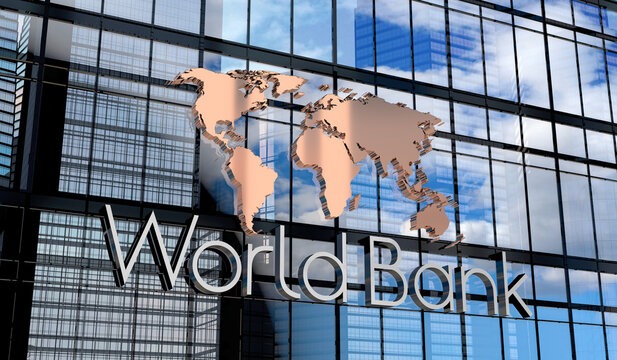World Bank Unveils Bold Vision for Sustainable Agriculture, Food Security by 2030

In a determined push to revolutionise agriculture and ensure global food security, the World Bank has unveiled a comprehensive agenda aimed at creating sustainable food systems in developing economies.
The institution has committed to investing $9 billion annually in agri-finance and agribusiness by 2030, positioning itself as a critical driver of change in food production and supply.
Over the last six months, the World Bank has galvanised its resources, assembling its global workforce to focus on connecting millions of unbanked farmers to global value chains.
This initiative responds to the urgent need for job creation and economic empowerment in emerging markets.
With a $22.3 billion agricultural lending programme over the past five years, the institution is leveraging its financial clout to catalyse meaningful change in food systems worldwide.
A significant shift in the World Bank’s approach has been its emphasis on climate-smart agriculture, which now constitutes 62% of its portfolio.
Financing for such initiatives has increased eightfold since the signing of the Paris Agreement, reflecting a robust commitment to addressing climate change.
Through the Food and Nutrition Security Global Challenge Programme (GCP), now operational in multiple countries, the Bank has mobilised 12 partners to address global food crises with coordinated action.
The GCP also supports innovative techniques to enhance resilience and sustainability, such as alternative drying and wetting methods to reduce methane emissions and expanding agroforestry.
These strategies aim to bridge the gap between existing solutions and large-scale implementation, ensuring the planet’s healing aligns with improved agricultural productivity.
The World Bank has played a pivotal role in enhancing food and nutrition security, reportedly benefiting over 200 million people globally.
Leveraging $3.5 billion, the institution is scaling up efforts at the national level, influencing over 40 governments to realign public policies and expenditures towards sustainable outcomes.
This represents a doubling of engagement compared to last year, demonstrating a growing influence in shaping agricultural policies.
Protecting biodiversity for agriculture has emerged as a cornerstone of the Bank’s strategy. Through the Global Environment Facility-funded initiatives and programmes such as FoodSystems 2030, the institution is fostering stakeholder dialogue and scaling proven innovations, including sustainable rice value chains and climate-resilient farming techniques.
Recognising the critical interplay between nutrition and agriculture, the Bank aims to tackle the global rise in malnutrition and obesity.
With unhealthy diets costing 2.2% of global GDP, the institution seeks to promote healthy and sustainable diets as part of its broader agenda.
Building on the recognition achieved at COP28 in Dubai, where food systems were acknowledged as integral to climate action, the World Bank plans to further its agenda at COP30 in Brazil.
The focus will include ambitious Nationally Determined Contributions (NDCs) to facilitate a just and inclusive food transition, ensuring smallholder farmers’ interests remain at the forefront.
The World Bank’s long-term vision underscores its role as a global leader in sustainable agriculture.
By 2025, the institution intends to enhance coordination through expanded partnerships, reducing fragmentation in overseas development assistance and better leveraging existing resources.
Its efforts aim to empower farmers, protect biodiversity, and create a more resilient food system for future generations.
Through innovation, collaboration, and strategic investment, the World Bank is charting a path towards a sustainable agricultural future, ensuring food security and resilience for the world’s most vulnerable populations.







